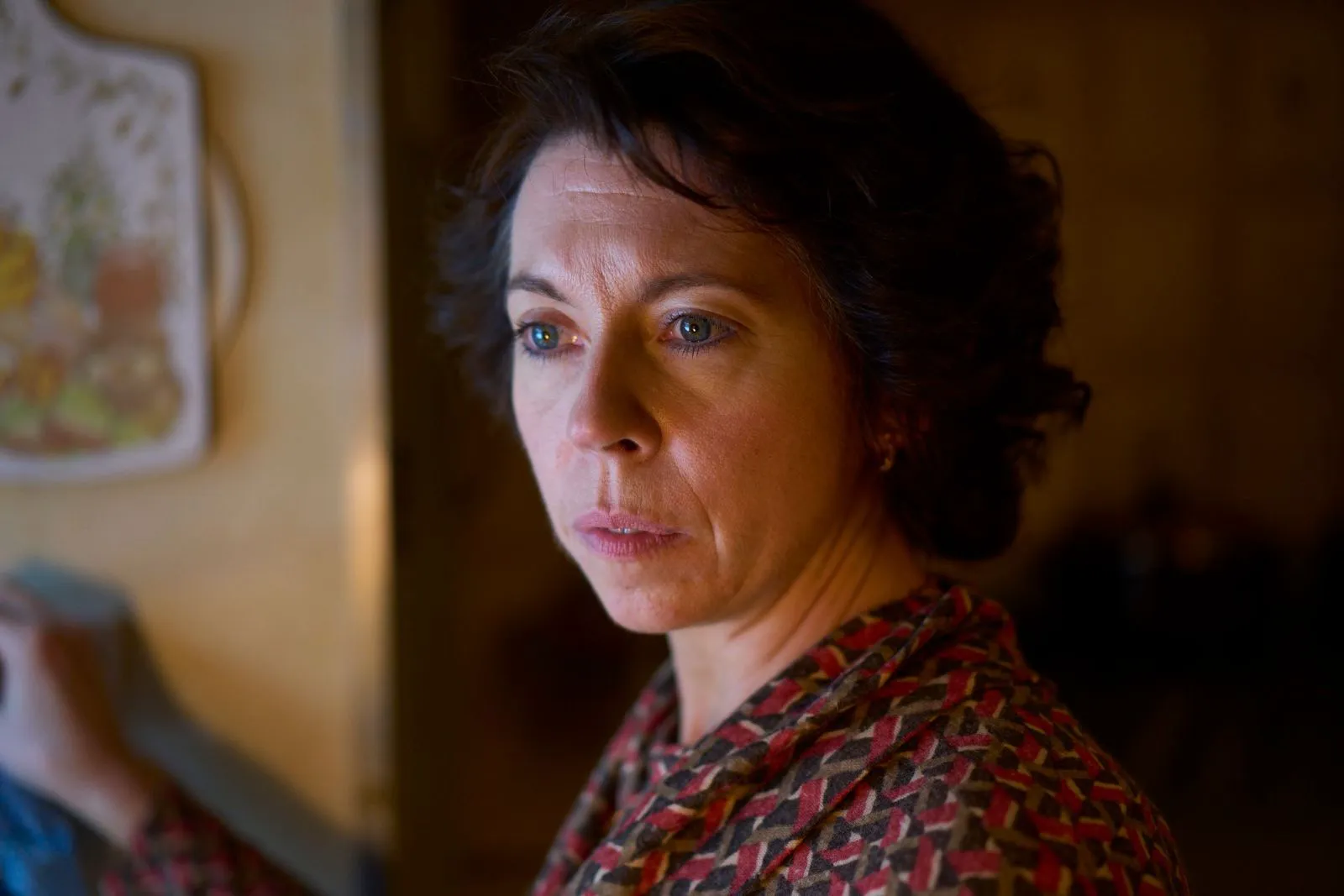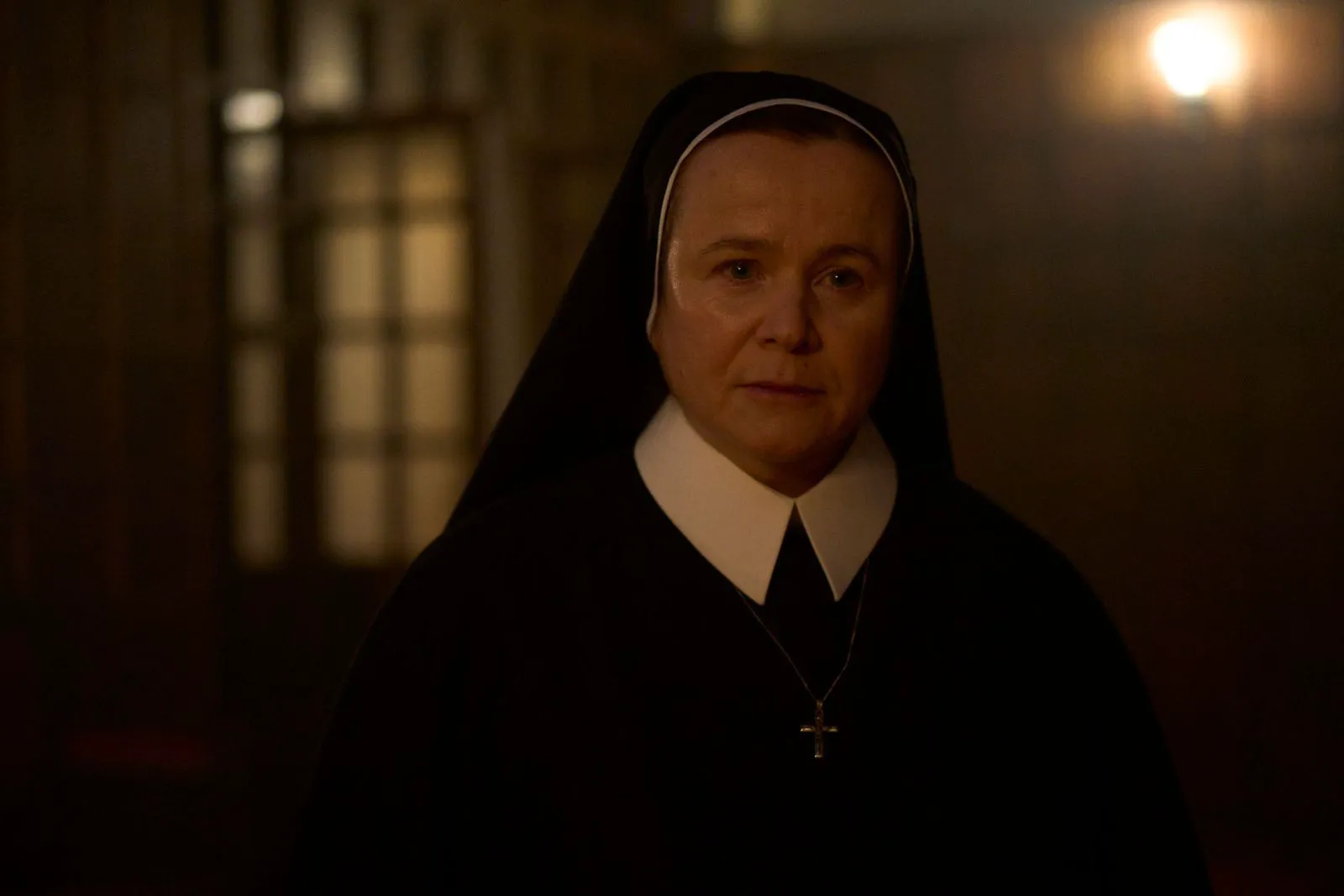In 1985, Bill (Cillian Murphy) resides in a small Irish town. He’s a husband, a father to five daughters, and the owner of a coal delivery business. He’s no stranger to hard work, personally delivering orders and bagging the coal. The Furlongs may not be wealthy, but their home is tidy, and everyone is fed, even if meat is scarce in their stews. The country is so ravaged by civil unrest that homeless children scavenge for food in the grimy alleyways. Christmas is approaching, and there might not be enough money for gifts or a proper celebration, but Bill already only makes it home for dinner, just to spend some time with his family. During one of his deliveries to a convent, he witnesses nuns forcibly dragging a young woman into the building. This event deeply disturbs him. Late at night, Bill quietly gets out of bed, sits in a chair by the window, and reflects on his childhood, filled with secrets.

Cillian Murphy as Bill in “Small Things Like These”
Belgian director Tim Mielants is best known to the world for the hit series “Peaky Blinders,” which also starred Cillian Murphy. Their new collaboration is a quiet and intimate drama, “Small Things Like These,” where impoverished people find the strength to carry on. Bill’s family’s situation is clear from a few scenes: unlike many, they have an income, they aren’t starving or freezing, but they know their business could collapse at any moment. Basic human needs – warmth and food – are a privilege in “Small Things Like These.”
Echoes of Poverty and Class

Eileen Walsh as Eileen in “Small Things Like These”
The theme of poverty and class disparity has been best explored by Ken Loach, who makes films about the working class surviving in the face of rampant capitalism. As early as his 1969 film “Kes,” Loach showed how children of the poor have no chance to escape poverty, how the system condemns them to low-paying jobs. Since then, according to Loach’s films, the situation hasn’t changed much. In “Small Things Like These,” Bill is the son of a single mother, Sarah (Agnes O’Casey), who worked as a servant for the wealthy Mrs. Wilson (Michelle Fairley) in exchange for lodging and food. Many years ago, on Christmas, Mrs. Wilson gave him a simple hot water bottle – the boy was offended and ran outside, not understanding why. This scene perfectly illustrates the deep chasm between classes: a rich woman gives a child a hot water bottle so he won’t freeze at night, while she likely has her bed warmed with coal every day.
Family vs. Faith

Emily Watson as Sister Mary in “Small Things Like These”
In addition to social issues, director Tim Mielants also explores family dynamics. Bill’s mother died when he was about ten years old, and the identity of his father is unknown. He remembers his mother’s suffering, the image of a lonely woman rejected by society, and therefore decides to find out what is happening in the church. It turns out that pregnant unmarried women are sent to the convent, to so-called Magdalene laundries: the future mothers are kept in terrible conditions, inducing miscarriages. The anti-clerical theme in “Small Things Like These” serves to contrast the real family with the religious family (the church), where, on the one hand, there is understanding and support, and on the other, orders, torture, and manipulation.
It should be noted that not all families in the film are happy. On one of the roads, Bill meets a boy dragging dry branches from the forest. His father is an alcoholic, and the parents have no money at all, so Bill gives the child some change from his pocket (for which he later hears reproaches from his wife). This gesture of equality, a gift from the poor to the poor, the mutual understanding of people in trouble, is the main melody of the film, sounding in the dirty gray walls of the streets, the coal-blackened hands, the tired eyes, and the dim yellow lanterns.
A Subtle Solidarity
If the melodrama and pathos of Loach’s films, his plots twisted into a whirlpool of despair, loudly proclaim the problems of society and criticize British politics from a Labour perspective, then Tim Mielants’ “Small Things Like These” is more focused on a sense of solidarity. Bill sees his mother in the imprisoned girls and understands how difficult it will be for children born out of wedlock – he was one of them, whose coat was sometimes spat on by classmates. The hidden rhymes and plot interweaving of “Small Things Like These” are captivating, allowing you to experience the film on a deep level and see in the stranger Bill a fragile, coal-like person, trying to pass on warmth to others, even though he himself is about to turn to ashes.